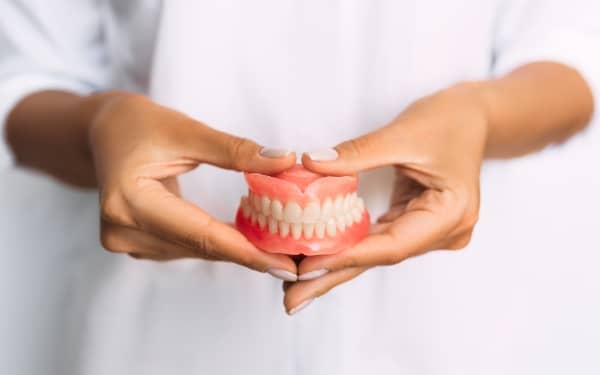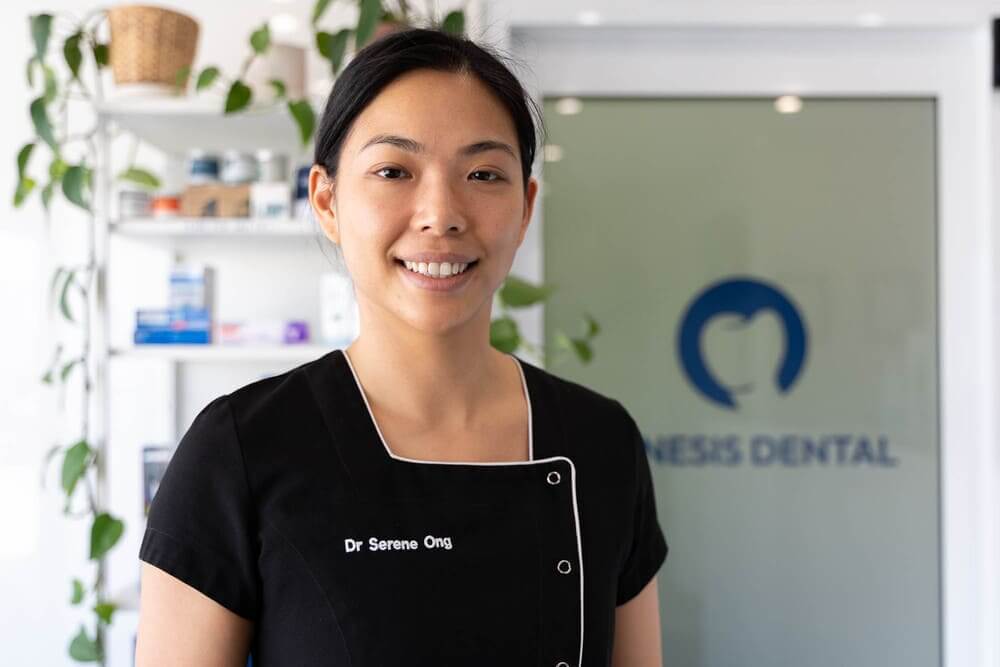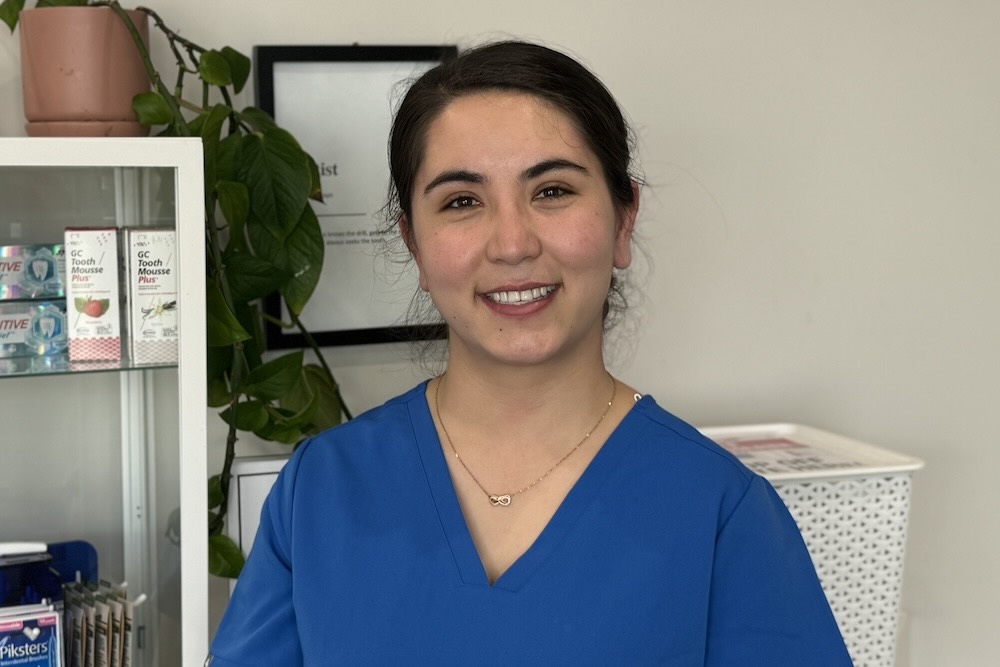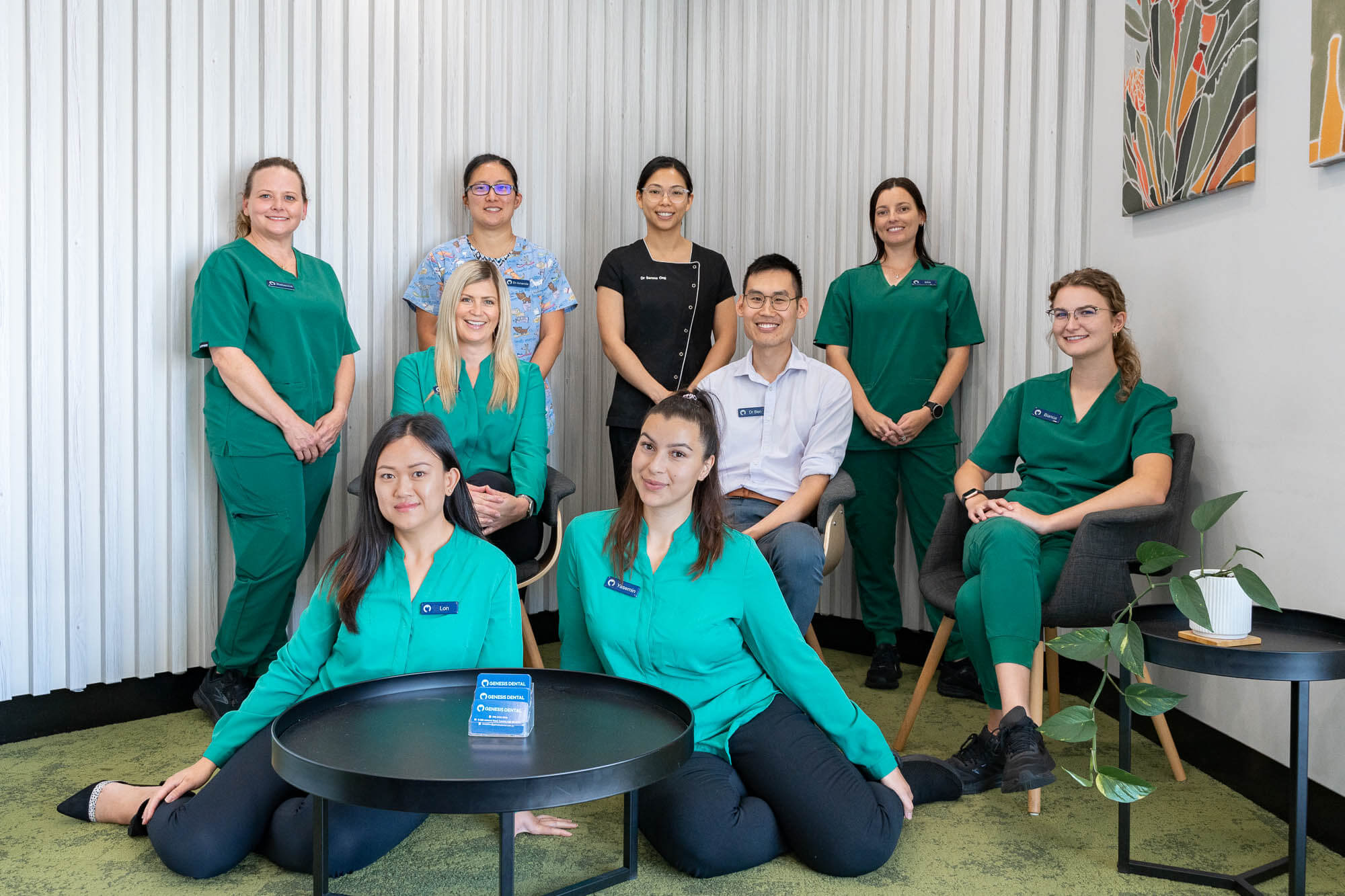Dentures Canning Vale
Our Denture Solutions
Our Denture Solutions
We provide complete and partial dentures designed to restore appearance and function for patients who have lost some or all of their natural teeth.
We provide both complete and partial dentures for:
- Traditional dentures
- Implant-support dentures
- Immediate dentures (temporary)
To find out which option will be most suitable for you, book an appointment with a dentist today using our easy-to-use, online appointment booking system or give us a call.
Denture Repair
If you’ve broken your dentures, we can also assist you with a comprehensive and timely denture repair solution.
We can usually organise a denture repair in as little as a 1-3 days. Please contact our team in Canning Vale to see how we may assist you.
It may also be necessary to replace your dentures if they are over 5 years old.
Ill-fitting dentures can cause irritation and a range of problems, so please contact us if you are concerned your dentures need to be re-fitted.


What Is the Process?
The process for creating and fitting your custom dentures iinvolves the following steps:
1. Impression
- Your dentist will create an impression of your teeth and use that to create a model.
- We then use that model to fabricate a custom denture.
2. Fitting
- We’ll schedule a fitting appointment to ensure a proper fit
- During the appointment, we will make any necessary adjustments
To start the process of creating your custom dentures, click the button below to book an appointment online with one of our friendly team members.
Associations
Our dentists are members of reputable dental associations, including the Australian Dental Association WA (ADAWA) and the Australian Health Practitioner Regulation Agency (AHPRA). We are also accredited by QIP, meaning our practice adheres to industry guidelines and regulations.
We accept all health funds, claimable on the spot for your convenience. We are preferred providers with HBF, HCF, CBHS and NIB, meaning you can maximise your rebate.
We also provide interest free payment plan options via The Tooth Market’s Fund My Dental. We also participate in government aided programs such as the Child Dental Benefits Scheme and provide top quality treatment for Department of Veterans’ Affairs (DVA) card holders.









Meet Our Team

Dr. Serene Ong
Dentist

Dr. Ben Luu
Dentist

Dr. Ashleigh Furfaro
Dentist

Dr. Jun Liew
Dentist

Fatima Akbari
Oral Health Therapist

Why Choose Genesis?
Our clinical team includes Dr Serene Ong, Dr Ben Luu, Dr Ashleigh Furfaro, Dr Jun Liew, and Oral Health Therapist Fatima Akbari. We provide tailored advice on denture care to help maintain both comfort and oral health.
We aim to make every appointment as comfortable and informative as possible, and will ensure you understand all your available treatment options.
FAQs
How can I take care of my dentures?
Practicing a daily denture cleaning routine is crucial for preventing problems and keeping your dentures bright.
Here are some important tips on how to care for dentures:
- When not wearing your dentures, place them in a denture-soaking solution or a glass of cold water to keep them hydrated
- Limit consumption of foods such as beets, red wine, tomato sauce, coffee, and berries (rinse dentures immediately after if you do eat or drink any of these foods)
- Maintain a regular brushing routine for your dentures, just as you would for your teeth
- Be delicate when handling dentures and avoid dropping them
- See your dentist for regular checkups
- Do not use teeth whitening intended for natural teeth
- Continue to gently brush your gums, tongue, and palate daily with a soft-bristled toothbrush
- Do not use hot water to clean or rinse dentures
- Avoid soaking dentures in bleach or household cleaners
- Treat stains right away
- Do not use regular toothpaste or abrasive cleaners to care for your dentures (choose denture-specific products or feel free to ask us for recommendations)
- Avoid tobacco products
What are dentures?
Dentures are a plate or frame that holds one or more artificial teeth and is worn inside the mouth. They may be recommended when teeth are missing or cannot be restored using other treatments.
What are complete and partial dentures?
Complete dentures are made with a synthetic base that is custom-fitted to your gums. They are designed to replace all teeth in the upper or lower jaw.
Partial dentures are removable artificial teeth that sit alongside the natural teeth and are held in place with clasps.
What are traditional dentures?
Traditional dentures are a removable prosthetic device designed to replace missing teeth. They are custom-made to fit the upper and lower gums comfortably, relying on suction and sometimes adhesive to stay in place. Traditional dentures are typically made after any remaining teeth have been removed and the gum tissue has begun to heal, ensuring a proper fit.
What are implant-supported dentures?
Implant-supported dentures use dental implants as a foundation to help improve stability. These implants are surgically placed into the jawbone and provide an anchor for the dentures. Suitability and outcomes vary, and your dentist will assess whether this option is right for you.
What are immediate dentures?
Immediate dentures are designed and created before any remaining teeth are removed. They are fitted immediately after tooth extraction, which means you won't have to be without teeth during the healing process. However, as your gums and bone structure will change shape significantly during healing, immediate dentures often require more adjustments to fit properly in the long term compared to traditional dentures.
How do I decide what dentures are right for me?
The best type of dentures for you depends on several factors, including the health of your gums and jawbone, your lifestyle, and your personal preference. During your consultation, we'll discuss your options in detail, considering your specific situation to recommend the most suitable solution.
Are implant-supported dentures more expensive than traditional dentures?
Implant-supported dentures generally cost more initially due to the surgical procedure involved. For some patients, they may offer improved stability compared to traditional dentures. Your dentist can help you weigh the potential benefits, risks, and costs for your situation.
How long do they take to get used to?
The adjustment period varies from person to person. Many people adapt to new dentures within a few weeks, while others may take several months to feel fully comfortable eating and speaking. Your dentist will provide guidance and support to help you adjust at your own pace.
Can I wear my dentures all the time?
While dentures are designed for daily wear, it's important to remove them at night to allow your gums to rest and to maintain good oral hygiene. Soaking your dentures overnight in a cleaning solution also helps keep them clean and reduce bacterial build-up.
How do I know if I need them?
If you are experiencing difficulty chewing, speaking, or have missing teeth, dentures may be one of the options to restore function. Your dentist can assess your oral health and discuss whether dentures or another treatment would be suitable for you.
Can I eat normally with dentures?
Many people find they can eat a wide variety of foods with dentures once they adapt to wearing them. Starting with softer foods and gradually progressing to harder textures can help make the transition easier.
How do I care for my dentures?
Denture care is crucial for maintaining your oral health and the longevity of your dentures. It involves daily brushing, soaking them overnight in a cleaning solution, and handling them with care to avoid damage. Regular check-ups are also essential to ensure your dentures remain in top condition and continue to fit well.
What should I do if they break?
If your dentures break, become loose, or cause discomfort, it's important to see us as soon as possible. Do not attempt to adjust or repair them yourself, as this could cause further damage. We offer professional repair and adjustment services to ensure your dentures are comfortable and functional.
How often should I replace my dentures?
Dentures may need to be replaced every 5 to 7 years, depending on changes in the shape of your mouth and wear over time. Regular check-ups allow your dentist to monitor fit and advise when replacement is recommended.
Do they affect how I speak?
It’s common to notice temporary changes in your speech when you first start wearing dentures. With practice and adjustment, many people find their speech returns to normal over time.
Can dentures be fitted to receding gums?
In many cases, dentures may still be an option for people with receding gums. Your dentist will need to assess your oral health and gum condition to determine the most suitable approach.
To learn more, review our blog here: Can dentures be fitted to receding gums?
Are there any alternatives to dentures?
Alternatives to dentures can include dental implants or crowns and bridges, depending on your needs and oral health. Your dentist can discuss which options are available and suitable for your situation.
Have a Question?
If you have any questions, please feel free to get in touch with our friendly team via phone or the form below.